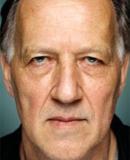
Werner Herzog
Werner Herzog
Director, screenwriter, actor, producer, video editor, cinematographer
Biography
Werner Herzog (born 5 September 1942) is a German screenwriter, film director, author, actor, and opera director. Herzog is a figure of the New German Cinema. His films often feature ambitious protagonists with impossible dreams, people with unique talents in obscure fields, or individuals who are in conflict with nature. French filmmaker François Truffaut once called Herzog "the most important film director alive." American film critic Roger Ebert said that Herzog "has never created a single film that is compromised, shameful, made for pragmatic reasons, or uninteresting. Even his failures are spectacular." He was named one of the world's 100 most influential people by Time magazine in 2009. Herzog was born Werner Stipetić in Munich, to Elizabeth Stipetić, an Austrian of Croatian descent, and Dietrich Herzog, who was German. When Werner was two weeks old, his mother took refuge in the remote Bavarian village of Sachrang (in the Chiemgau Alps), after the house next to theirs was destroyed during a bombing raid in World War II. In Sachrang, Herzog grew up without running water, a flushing toilet, or a telephone. He never saw films, and did not even know of the existence of cinema until a traveling projectionist came by the one-room schoolhouse in Sachrang. When Herzog was 12, he and his family moved back to Munich. His father had abandoned the family early in his youth. Werner later adopted his father's surname Herzog (German for "duke"), which he thought sounded more impressive for a filmmaker.The same year, Herzog was told to sing in front of his class at school, and he adamantly refused, and was almost expelled. Until he was age eighteen, Herzog listened to no music, sang no songs, and studied no instruments. He later said that he would easily give ten years from his life to be able to play the cello. At an early age, he experienced a dramatic phase in which he converted to Catholicism, which only lasted a few years. He started to embark on long journeys, some of them on foot. Around this time, he knew he would be a filmmaker, and learned the basics from a few pages in an encyclopedia which provided him with "everything I needed to get myself started" as a filmmaker—that, and the 35 mm camera he stole from the Munich Film School. In the commentary for Aguirre, the Wrath of God, he says, "I don't consider it theft. It was just a necessity. I had some sort of natural right for a camera, a tool to work with". He won a scholarship to Duquesne University and lasted only a few days, but lived in Pittsburgh, Pennsylvania. During his last years of high school, no production company was willing to take on his projects, so Herzog worked night shifts as a welder in a steel factory to earn the funds for his first featurettes. After graduating from high school, he was intrigued by the Congo after its independence, but only reached the south of the Sudan where he fell seriously ill. While already making films, he had a brief stint at Munich University, where he studied history and literature. He earned money by participating in preproduction of a documentary for NASA with KQED. Summoned to the immigration office because of a violation of his visa status, he chose to flee to Mexico.
For more information press the link below:
https://en.wikipedia.org/wiki/Werner_Herzog
Filmography
Film Director
Screenwriter
Actors
Rəy bildirmək üçün Giriş et və ya Qeydiyyatdan keç

